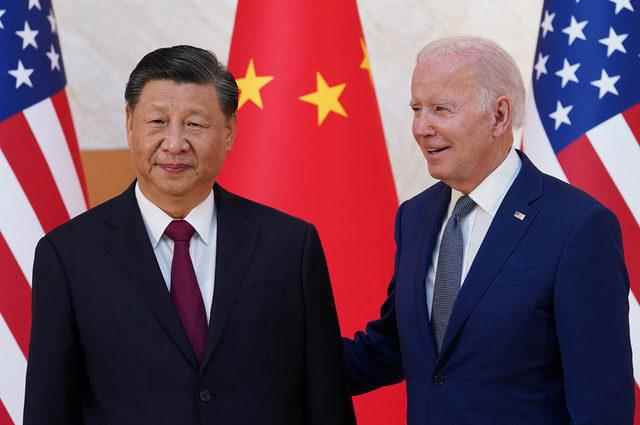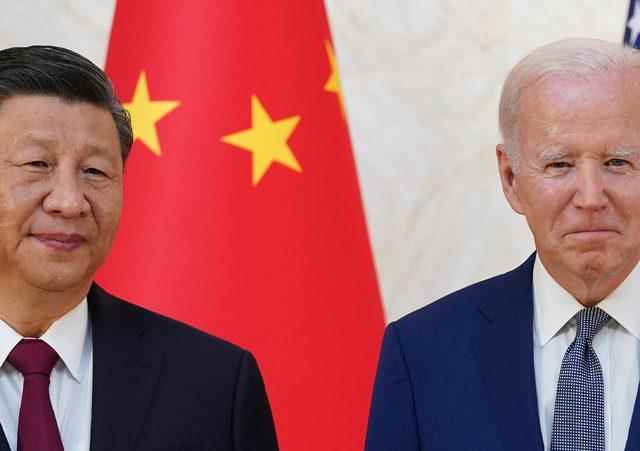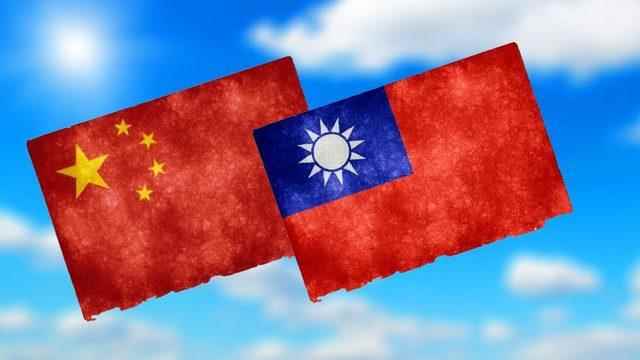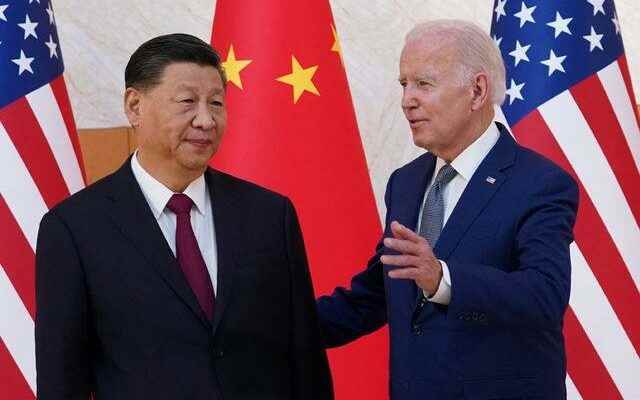Chinese President Xi Jinping, during his meeting with US President Joe Biden in Bali, Indonesia, where he went for the G20 Summit, stated that the Taiwan issue is “the political basis of US-China relations and the first red line that should not be crossed.”
According to the statement made by China regarding the 3.5-hour face-to-face meeting between the two leaders, Xi made assessments on the Taiwan issue during the meeting.
‘RED LINE’ EXPLANATION
Stressing that the resolution of the sovereignty conflict with Taiwan, which China sees as a part of its territory, is entirely the Chinese people’s problem and the country’s “internal business”, Xi said, “The Taiwan problem, which is China’s main interest, is the political basis of China-US relations and the first red line that should not be crossed.” said.
Noting that reunification with Taiwan is the basis of the Chinese people’s ideal of achieving national resurgence and restoring their territorial integrity, Xi said, “Whoever seeks to separate Taiwan from China is violating the fundamental interests of the Chinese nation, and the Chinese people will not allow it.” used the phrases.
Stressing that they desire and are committed to peace and stability in the Taiwan Strait, Xi said, “However, peace and stability between the two sides of the Bosphorus and ‘Taiwan’s independence’ are irreconcilable like fire and water.” he said.

Recalling that President Joe Biden has repeatedly stated that the United States does not support Taiwan’s independence and has no intention of using Taiwan as a means to compete with or surround China, he continued to support the Washington administration, its rhetoric and assurances with real actions and urged to abide by its commitments in the Three Joint Declarations, which underpin the “one China” policy and US-China diplomatic relations.
PELOSI’S VISIT AND RISING TENSION
The meeting between Biden and Xi was the first meeting after the tension between the two countries due to the visit of US House of Representatives Speaker Nancy Pelosi to Taiwan in early August.
The Beijing administration, which sees the island as a sovereignty area, opposed the visit, arguing that the visit of a high-level political official from the USA would be an encouraging step for the government on the island, which defends Taiwan’s independence, but despite Pelosi’s warnings, his visit brought the tension to a climax.
After the visit, the Chinese army started military exercises around the island, and the exercises that lasted for 7 days created a de facto blockade around the island. During exercises using real weapons and ammunition, guided missiles fired from mainland China fell into the waters near Taiwan.

The Chinese administration also announced that it would impose sanctions on Pelosi and her family due to the visit, and announced that it had stopped some bilateral dialogue and cooperation mechanisms with the US administration.
CHINA-TAIWAN DISPUTE
After the Second World War in China, the Communists, who were victorious in the civil war between the Chinese Nationalist Party (Koumintag) forces led by Chiang Kaishek and the Chinese Communist Party (CCP) forces led by Mao Zidong, declared the establishment of the People’s Republic of China on October 1, 1949. had done.
The members of Koumintag, who lost the civil war, settled in Taiwan and established a provisional government in Taipei, claiming that the “Republic of China” power established in 1912 continued on the Island.
Taiwan, which the People’s Republic of China claims to be part of its territory, has enjoyed de facto independence since 1949. The separation and sovereignty conflict between mainland China and Taiwan still continues.

Beijing, emphasizing the “one China” principle, opposes Taiwan’s establishing independent diplomatic relations with the countries of the world, its representation in the United Nations and other international organizations, and stipulates that the countries that recognize it should break diplomatic relations with Taiwan.
The USA adopted the “one China” policy by deciding to recognize the People’s Republic of China in 1979 and accepted Beijing as the legitimate government of all China. With the Taiwan Relations Act passed the same year, Washington pledged to maintain informal economic and cultural relations with the Taiwanese people, support the Island to have the military capacity to ensure its self-defense, and oppose actions to unilaterally change the status quo in the region. (AA)
